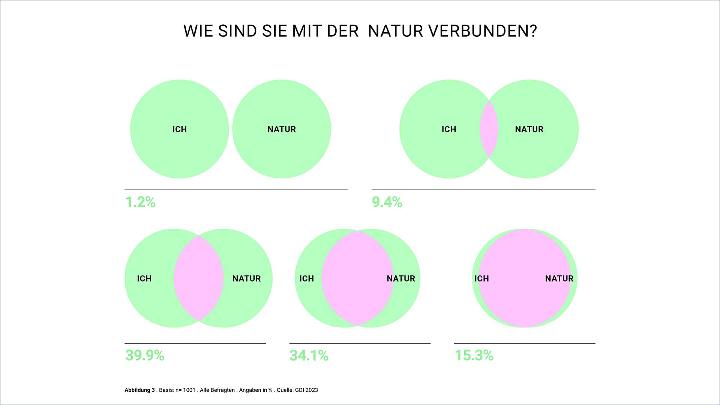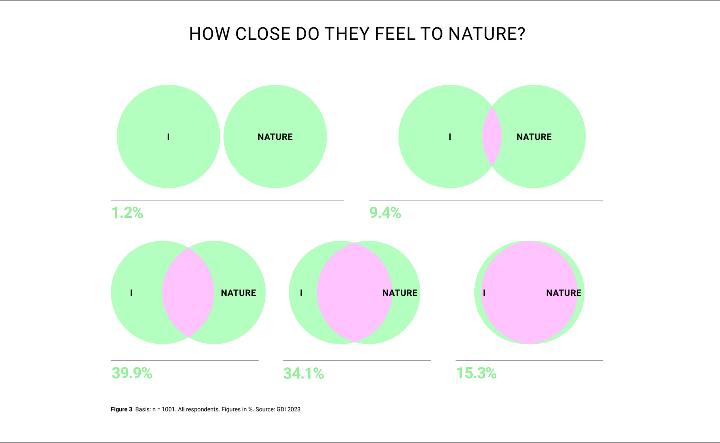Technological developments in biotechnology and microbiology are changing the way in which we produce and consume materials and interact with the environment. These advancements promote an economy based on regenerative principles. The bio-economy uses biological innovations to make production processes more eco-friendly - for example, by producing fuels from algae and using renewable energies.
However, fully harnessing the bio-economy’s potential requires not just technological progress, but also far-reaching social change. But how ready are we for that? Our study ‘The Age of Biology - How the Relationship between Humans, Nature and Technology is Changing’ looks at this issue in depth. In a representative survey of around 1000 people in German-speaking Switzerland, we explored the importance of nature to people in Switzerland today and how strongly they feel connected to it.
 |
 |
Most people feel close to nature
Even though many people today have little direct contact with nature, very few feel alienated from it. The survey results reveal that the majority of respondents feel a close connection to nature - especially women and people aged over 50. Almost 95% regret the destruction of nature and support its protection as an end in itself.
Almost half of respondents (46.4%) want to protect nature from human intervention and reject the development of new, previously unexploited areas. One fifth (19.3%) are open to the use of undeveloped areas for agricultural purposes, but only under certain conditions. Only around 10% believe protecting unspoilt nature is a naive goal. Even in areas less conducive to human settlement, over half (58.6%) do not want to see any further interventions, such as river straightening or drainage ditches. This view is shared by people living in both urban and rural areas.
Most respondents do not feel the need to control nature. The idea of ruthlessly exploiting nature holds little appeal. Younger people are more strongly opposed to overexploitation than older generations – probably because they will bear the consequences for longer.
Equal rights for all living beings
The majority (63.4%) of respondents consider all living beings to be equal and reject hierarchies between species. Only 13.3% feel superior to other living beings, and just 2.3% consider humans to be above nature. This viewpoint is found across all groups in terms of age, gender and level of education.
When asked their view on recognising plants and animals as legal entities, the vast majority of respondents agreed that all living beings should be treated equally. At least as an abstract concept, the democratisation of all living beings now seems self-evident. Many people today are clearly prepared to rethink their relationship with nature. They are significantly more inclined to support the rights of primates and ecosystems than those of individual animal or plant species.
Change in world view
Our survey reveals two major shifts: firstly, a shift in values from an anthropocentric to an ecocentric world view. This means nature is increasingly being recognised as an independent entity, combined with the idea of legal equality and inclusion of all living beings. Secondly, we no longer view nature as an external counterpart but instead as an integral part of our world – and ourselves. We are becoming increasingly aware that all our actions in nature have an impact on us and vice versa.
The results clearly indicate that a shift in values towards greater respect for and protection of nature is taking place. Our study ‘The Age of Biology - How the Relationship between Humans, Nature and Technology is Changing’ provides a deep insight into this change and shows how society and technology can work in tandem to create a more sustainable future.